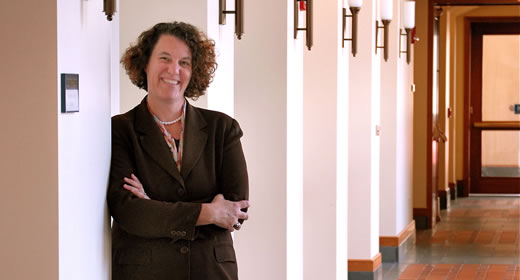
Atlantic Magazine cites a 2011 study co-authored by Susan M. Dynarski on the widening gaps between low- and high-income students in college entry and graduation rates. The article examines why a college education, once understood to be the "great equalizer" allowing low-income students to catch up economically with their more affluent counterparts, no longer reliably offers such gains.
Dynarski, a professor in the Ford School and the School of Education co-authored the often-cited study, "Gains and Gaps: Changing Inequality in the U.S. College Entry and Completion," with Martha J. Bailey, an assistant professor in the Department of Economics and research affiliate at the National Poverty Center.
According to the article, Massachusetts, home to America's best educational institutions and best-educated work force, has seen inequality between rich and poor rise at an alarming rate. Good jobs require an increasingly better education yet, even as lower-income students acquire more postsecondary schooling than in previous generations, the educational gains of the wealthy continue to outpace them. Thus, according to the article, the educational achievement gap continues to widen.
Dynarski and Bailey found growing gaps between children from high- and low-income families in college entry, persistence, and graduation. The study also revealed that gender differences in educational attainment, which were small or nonexistent thirty years ago, are now substantial, with women outpacing men in every demographic group.